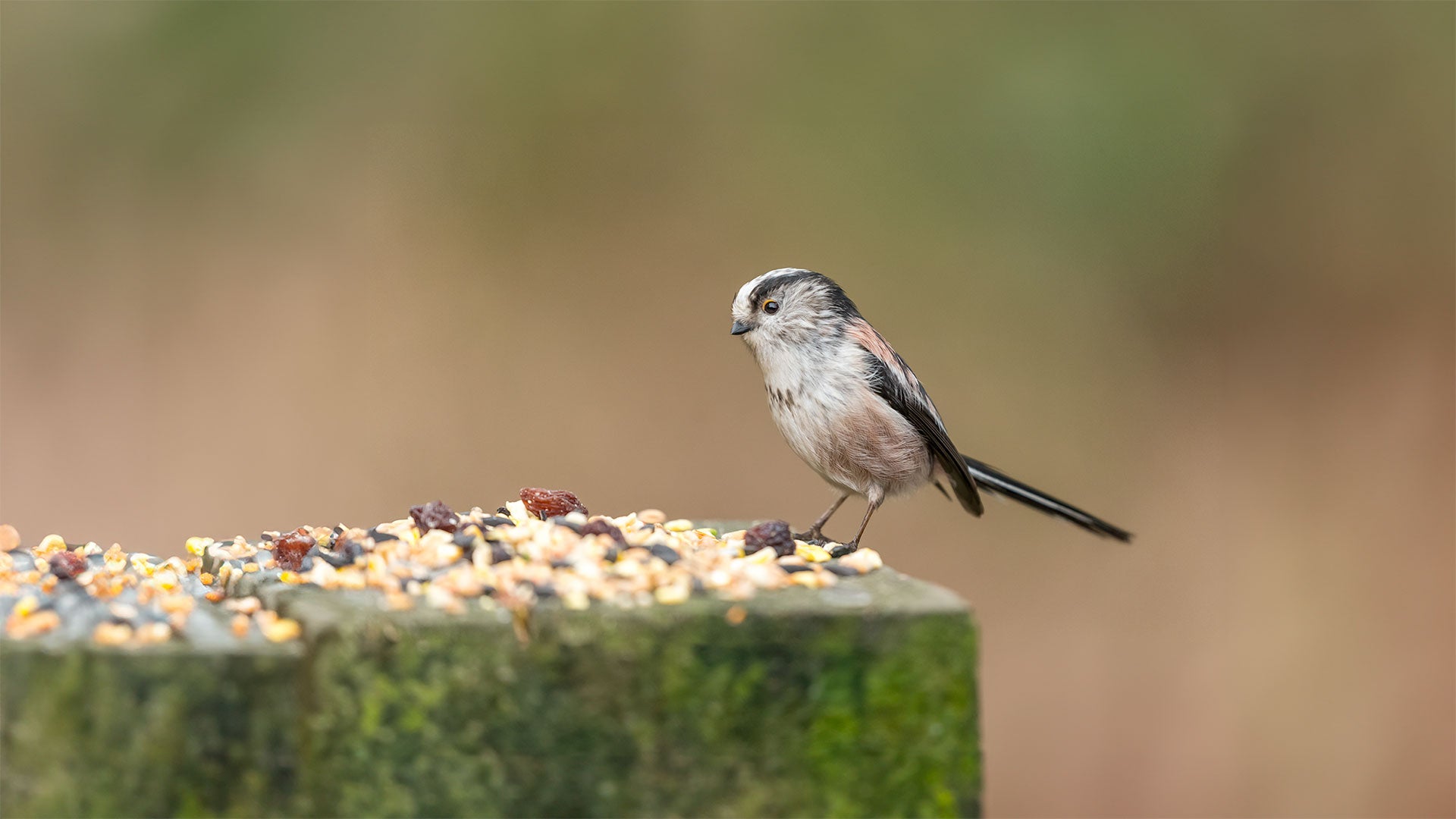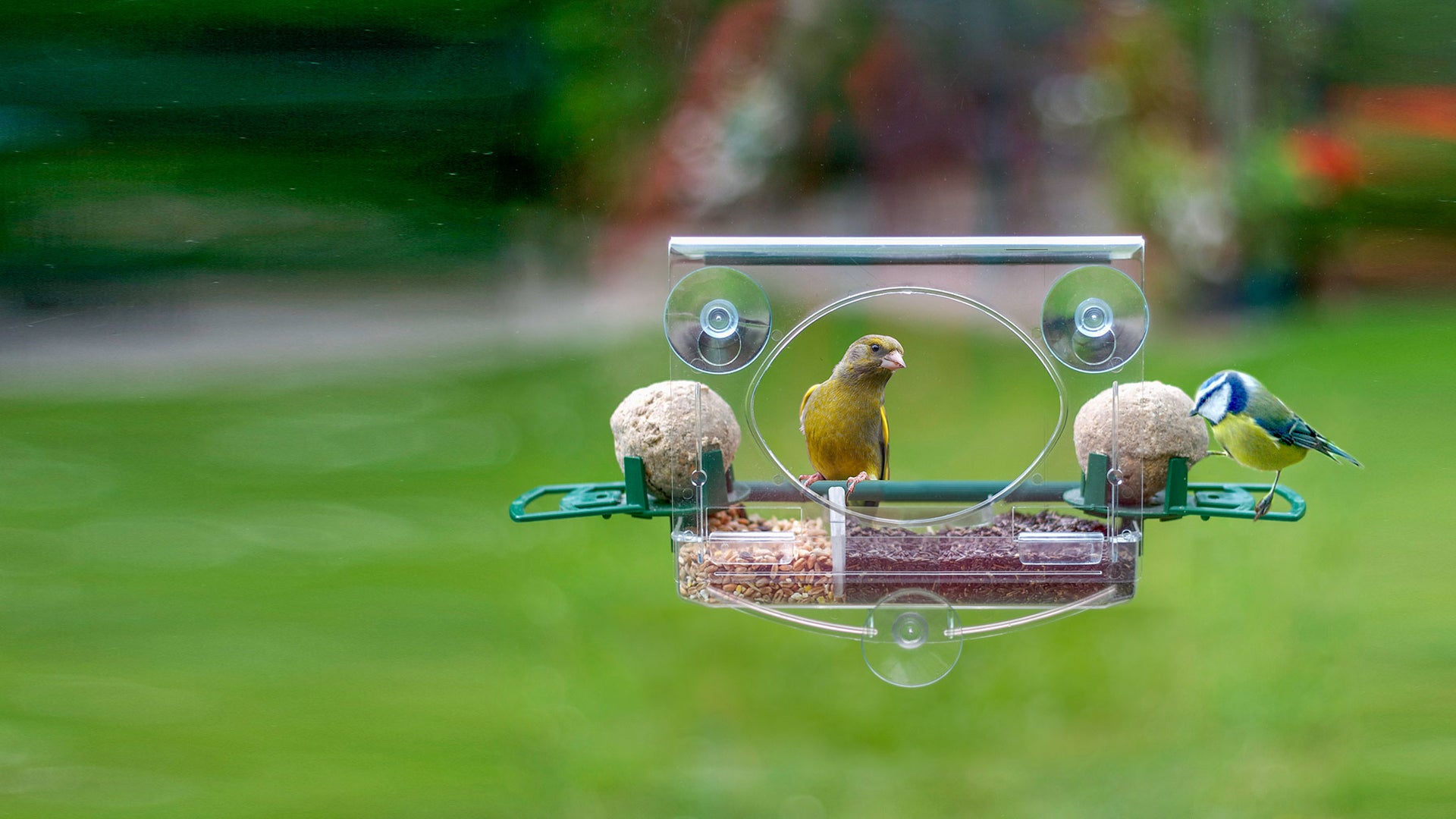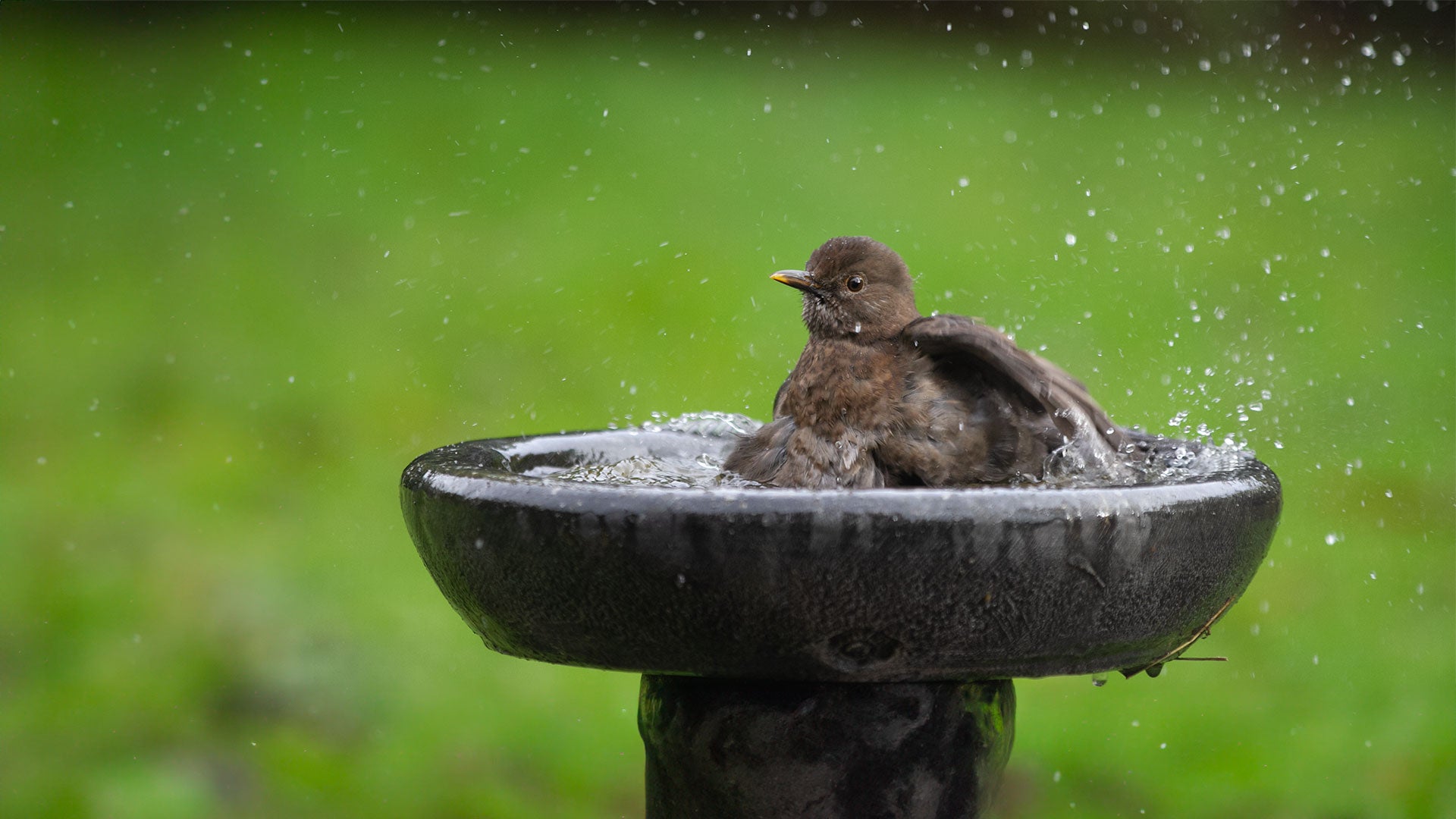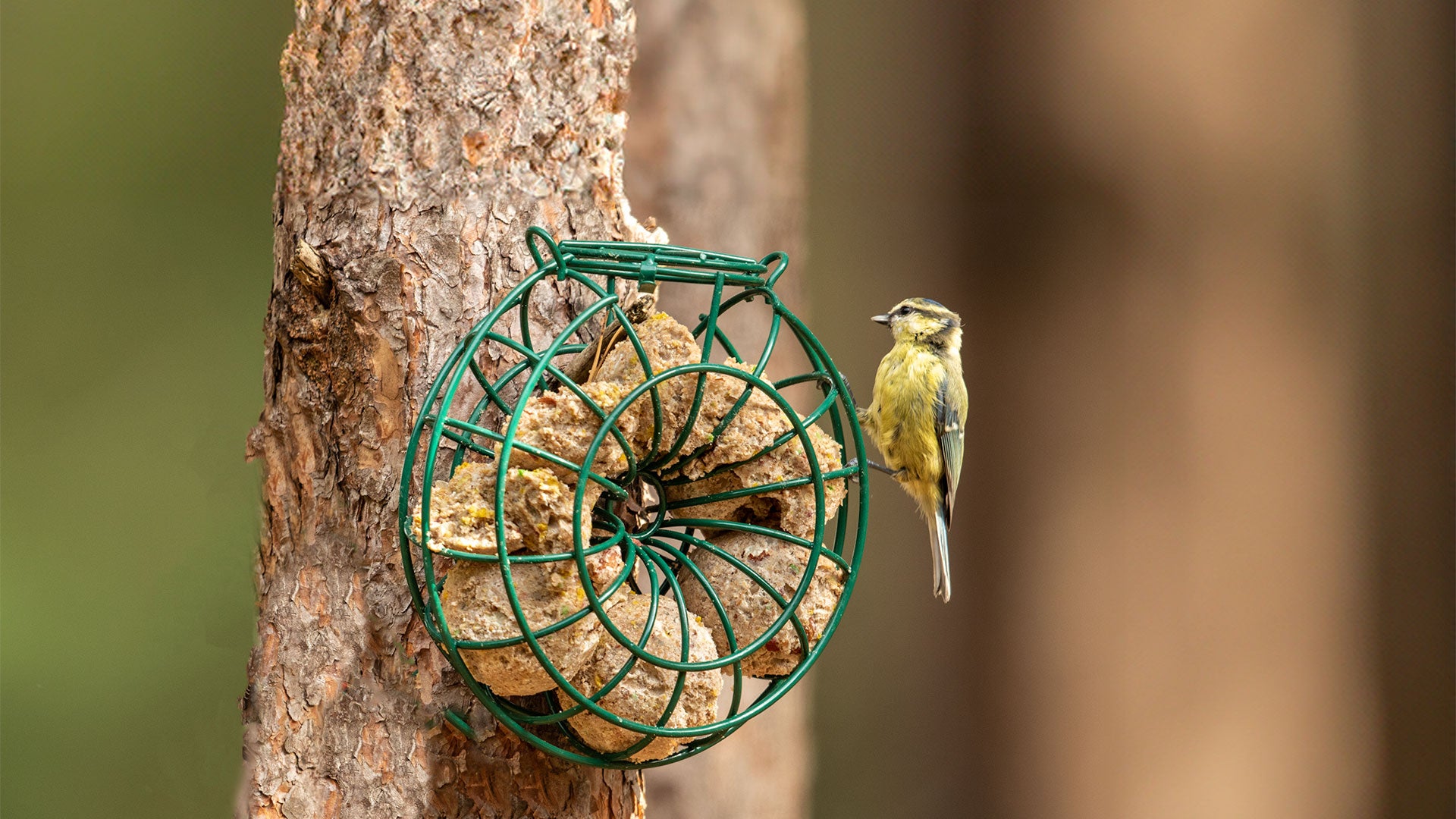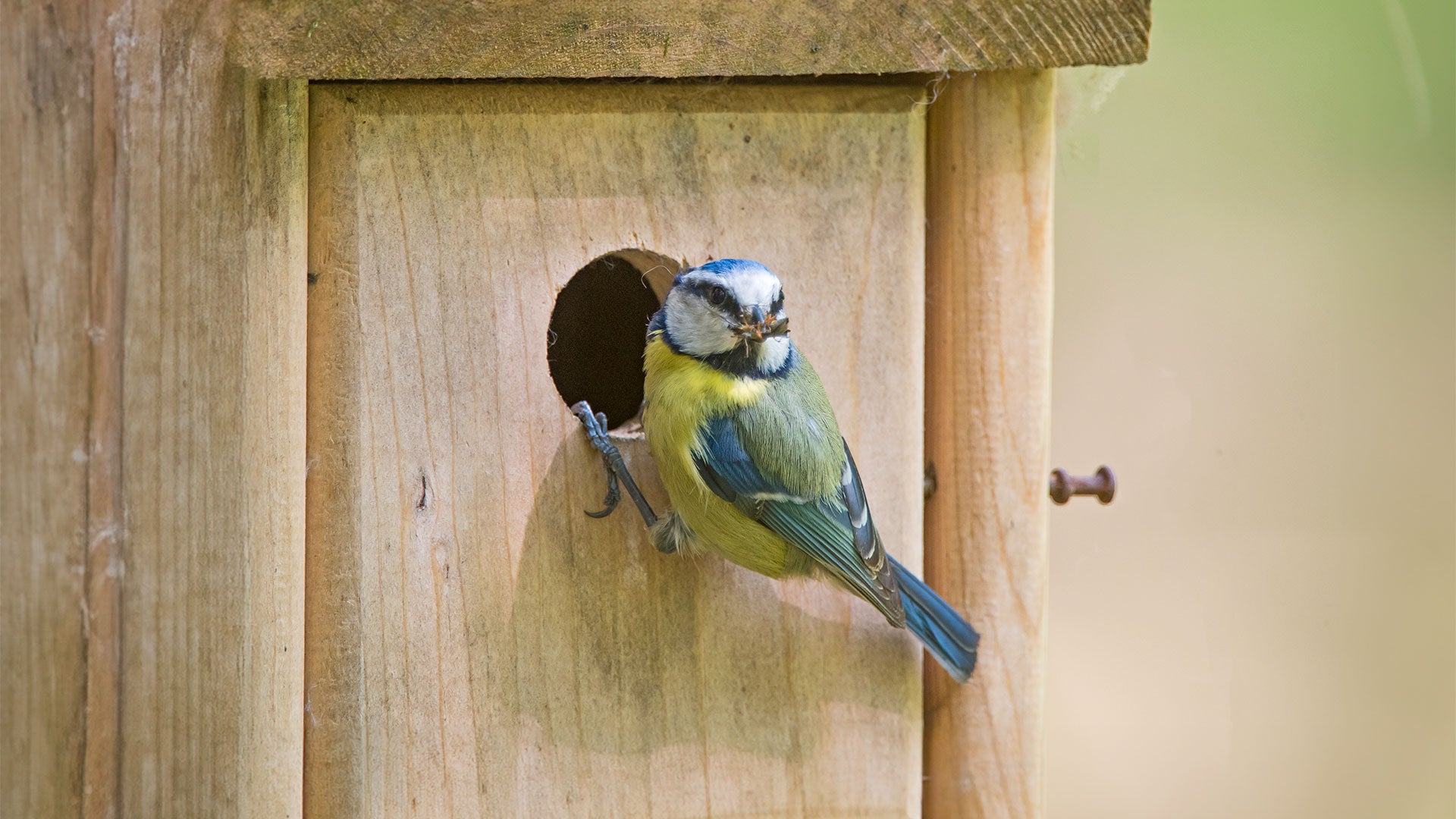A robin in the snow is a typical, heart-warming winter image. But winter is a brutal time of year for our feathered friends. During the colder months, birds find it hard to attain the food and nutrients they need to survive — food is fuel to keep them warm. We are a nation of bird lovers, so it’s distressing to think of our bird numbers declining during the winter.

We explain what to feed birds in the winter in the UK (and what not to feed them!). Read on for our top winter bird feeding tips.
What should you feed birds in winter?
Providing seasonal bird food for your garden birds is such an easy thing to make part of your daily routine, yet makes such a big difference — it can be life-saving. For the best chance of survival, feed your birds all year round (food shortages can occur at any time of year). In severe winter weather, feed twice a day — morning and afternoon.
Unlike us humans, who have to be careful that we don’t eat too much fatty food, winter bird food needs to be as calorific as possible: fat, nuts and seeds are ideal. Take a look at the list below — tasty treats that your garden birds like to eat in winter, which will ensure that they’re well nourished.
Peanuts — peanuts for birds rich in protein and fat and can be placed in peanut feeders for birds (not to be confused with peanuts for human consumption, which are too salty).
Niger seeds — niger seeds are tiny but mighty; they’re super-charged with much-needed fat and oil. You can place these seeds in one of our niger bird feeders.
Sunflower seeds for birds — these favourite seeds are loaded with unsaturated fats and protein. Black sunflower seeds are richer in oil than striped sunflower seeds due to their higher oil content. Sunflower hearts for birds are an extra thoughtful offering because your birds will not use precious energy removing the shell.
Fruits — sweet, juicy apples, grapes and pears will provide energy.
Fat balls — birds love fat balls, such as our premium fat balls, and they provide essential fats and protein.
What can you NOT feed birds in the winter?
It’s vital that you also know what food you shouldn’t feed birds in winter, otherwise food that you put out for them in kindness might actually harm them. Make sure you don’t feed your birds anything from the list below:
❎ No bread — bread has little nutritional value for birds. The birds will fill up their little stomachs eating bread, missing out on the essential nutrients they need from nuts and seeds.
❎ No milk — milk causes sickness and diarrhea leading to dehydration, which is dangerous for birds in any season, but especially in winter when water is hard to find.
❎ No old bird seed — the bird seed must be fresh, not spoiled, sprouting or stuck together.
❎ No salted or dry roasted peanuts — peanuts for human consumption contain high levels of salt, which birds can’t process, so this can lead to renal failure. Mouldy peanuts can also be lethal.
❎ No chocolate — it’s toxic to birds.
❎ No decaying food — it contains harmful bacteria and mould.
❎ No leftovers — the food might have been cooked using things which are harmful to birds, like salt, spices or garlic.

4 tips for feeding birds in the winter
It’s easy to feed your garden birds, but there are some important things to be aware of so you can fully support your local birds. Take a look at our top tips:
1. Choose good-quality bird food
Just like human food, not all bird food is created equally! Some unscrupulous retailers supply bird seed mixes containing cheap fillers the birds won’t eat. You need to buy good-quality bird food, jam-packed with nutrients. At Ark, our expertise guarantees high-quality ingredients from reputable suppliers.
You also need to store the food well to ensure the highest quality remains.
2. Keep your bird feeder clean
Sadly, many birds die due to disease and infection. To prevent further transmission and mouldy food, clean all your garden bird feeders and water dishes at least once a week. Make sure you use a natural cleaner which is safe for birds and dry the feeders thoroughly before refilling. Another way to avoid disease transmission is to move the bird feeders around on a rotational basis.
3. Understand different bird species
It’s fun to read about the different species of birds visiting your garden. And it’s also necessary because different bird species will eat different foods and in different ways! Robins love juicy worms and fruit (they’ll feed from the ground or from a bird feeder for robins), finches and sparrows love their seeds from the feeders, blue tits hang at odd angles and love the fat balls, chaffinches and dunnocks collect the fallen seed from the ground…starlings won’t be fussy! Enjoy spotting the different characters and make note of the foods they eat and what garden bird feeders they prefer.
4. Ensure water in bird baths doesn't freeze over
It’s vital that your garden birds have access to fresh, clean drinking water at all times. When feeding birds in winter, the water will freeze, so to prevent this, just pop a small plastic ball in the water and the movement should stop the water from freezing (or use Ice free for bird baths).
Finally, if you regularly feed birds during the winter months, make sure that you ask a neighbour to continue to feed them if you go away.



